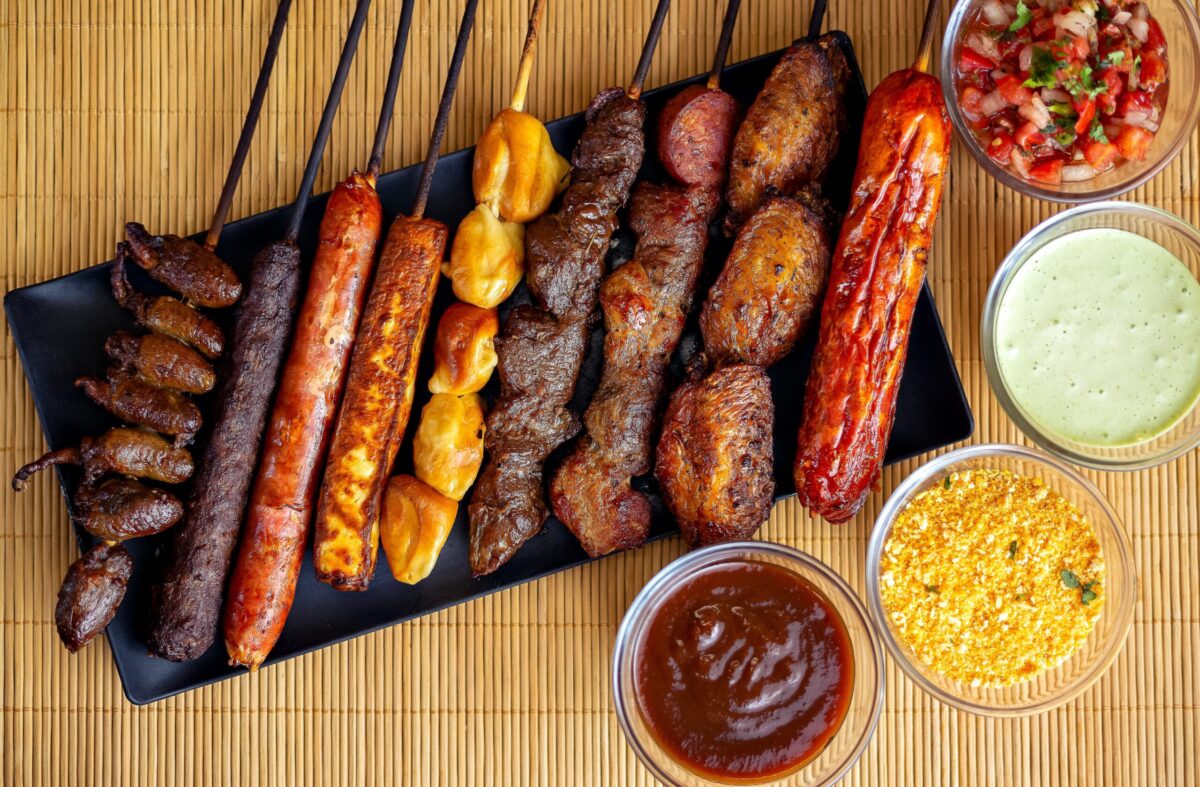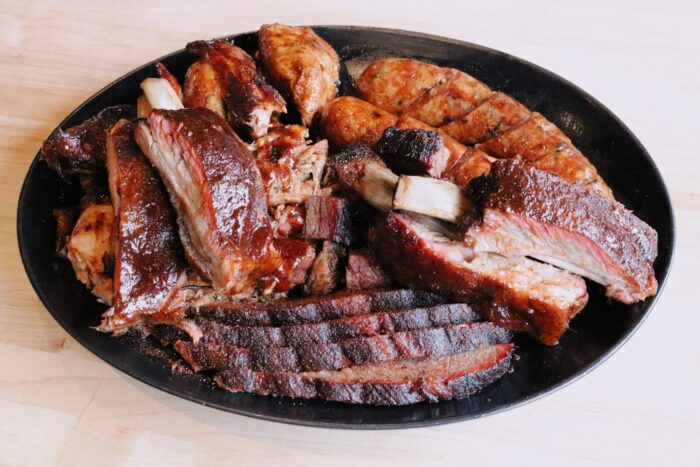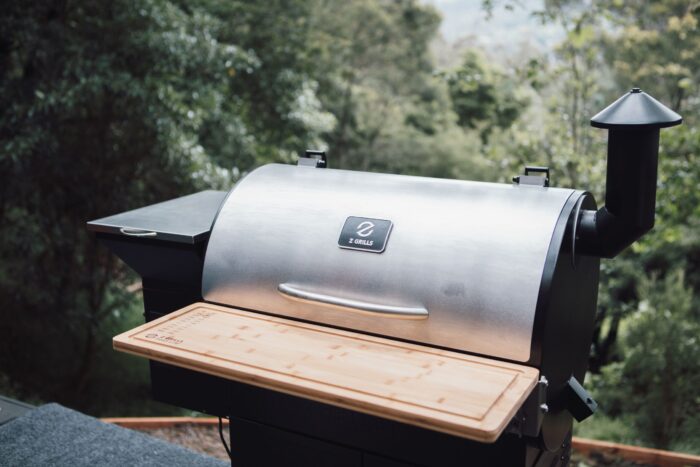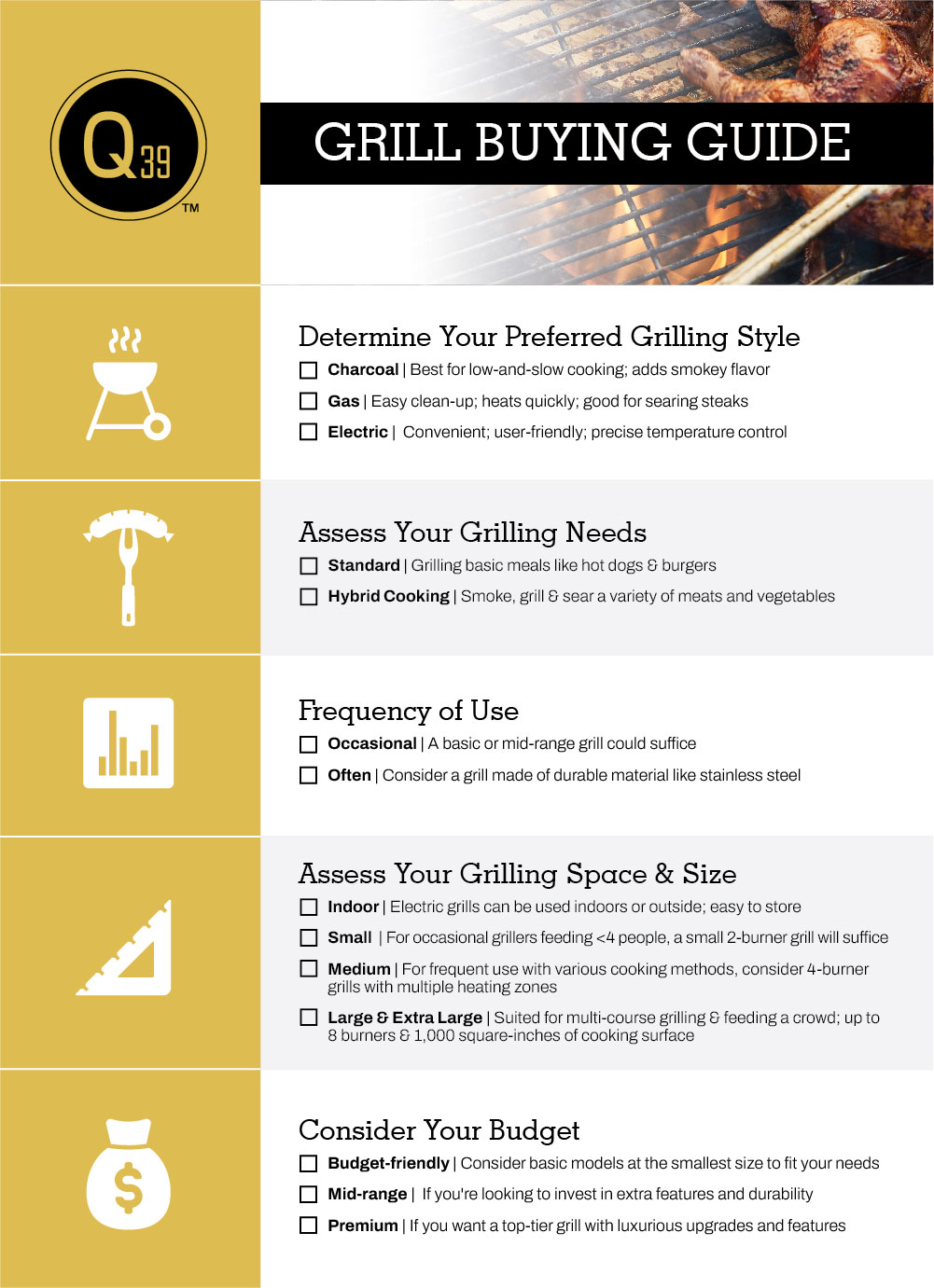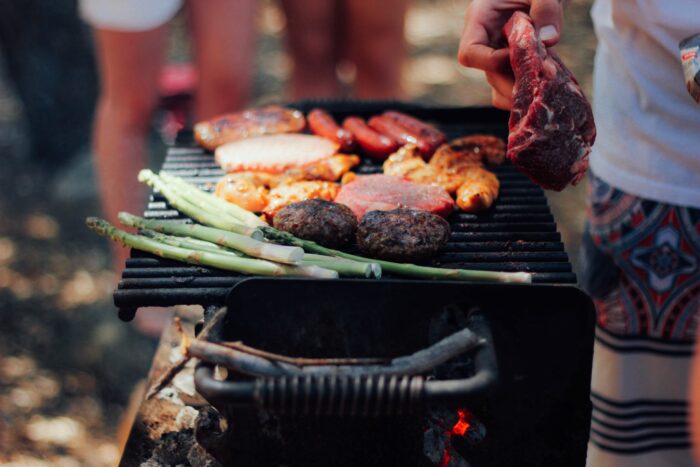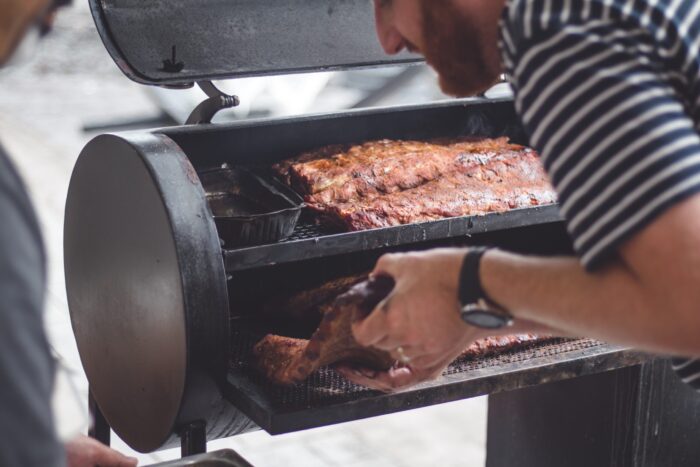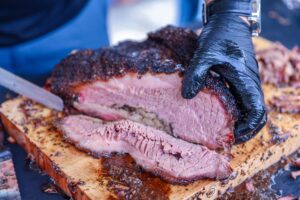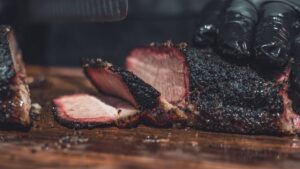For flavor enthusiasts, BBQ is not just a meal – it’s a food group. BBQ is a symbol of American cuisine, with Kansas City vying for the top destination spot. From smoky scents wafting through restaurants across the city to BBQ competitions drawing pitmasters from all over, BBQ is a way of life in the City of Fountains. Many have tried to imitate KC techniques and flavors, but nothing quite compares to the real deal. Below, we’re revealing some of Kansas City’s most legendary BBQ secrets. Here’s to inspiring you on your journey towards BBQ bliss!
Kansas City BBQ: The Art and Tradition
Kansas City BBQ is a combination of some of the most pronounced techniques – slow cooking, classic seasoning and delectable sauces. Here are a few ways it’s one-of-a-kind:
- Unique Blend of Flavors: The meat usually smoked in KC is a combination of pork, beef and chicken, slow-cooked for several hours to achieve a tender and juicy texture. One of the hallmark features is the use of a dry rub, a spice mixture coated onto meat prior to cooking. It’s usually composed of spices like paprika, brown sugar, cumin, garlic and salt, which gives the meat a savory and slightly sweet flavor.
- Rich History: Kansas City’s love for BBQ dates back to the 1800s when it was a meat-packing town. Slow-smoking and roasting of meat were quite common during this period as a way of preserving it. However, it was in the 1920s when the tradition of Kansas City BBQ really started to take off thanks to Henry Perry, who created a unique BBQ sauce from molasses, vinegar and black pepper. Perry’s dishes became a hit, eventually leading to the first-ever BBQ joint in the city.
- Low & Slow: The key to perfect Kansas City BBQ is slow smoking. Typically, the meat is cooked at a low temperature, usually 4-18 hours, depending on the cut of meat. Unlike other BBQ styles that use a wet marinade, Kansas City BBQ uses a dry rub before being finished with a tomato-based BBQ sauce. The rub is coated onto the meat, creating a flavorful bark when cooked.
- Many, Many Sauces: There’s no shortage of sauce options in KC – some are made with vinegar, but the signature sauce is tomato-based, offering a sweet and tangy taste with a smoky finish. It’s normally brushed onto the meat a few minutes before the end of the cooking process.
Local Ordinances and Laws around BBQ and Grilling
Safety concerns and city ordinances can vary from place to place, and it’s important to understand what’s allowed to avoid any fines or legal issues.
- Grilling Laws: In general, you’re not allowed to grill or start a fire within 25 feet of any building or structure. If you’re grilling in a public park or city-owned space, make sure to use designated grilling areas and dispose of coals properly. If you’re hosting a barbecue in your backyard, consider installing a fire pit or smoker that complies with local ordinances.
- Legal Grilling Locations Within the City: Kansas City has many beautiful parks and green spaces that are perfect for a summer barbecue with friends and family. However, not all of them allow grilling or barbecuing, and you could be facing hefty fines if you’re caught grilling in a prohibited area. Check with the city or park officials before setting up your grill or use one of the many designated picnic areas or outdoor kitchens that are available to rent.
- Safety Regulations: To ensure that your grill or smoker is safe and up to code, be aware of these safety regulations and city ordinances:
- Use a lid on your grill to prevent any stray sparks or embers from flying out.
- Keep your grill clean and free of grease buildup, which can cause hazardous flare-ups.
- Never leave a grill unattended while it’s in use.
- Check your propane tanks for any leaks or damage before using them.
- Make sure your grilling area is well-ventilated to prevent carbon monoxide poisoning.
- Obey local noise ordinances and don’t disturb your neighbors with loud noises or music.
- Other BBQ/Grilling Laws in Kansas City: There are a few more BBQ and grilling laws in Kansas City that you should keep in mind, including:
- You can’t dispose of hot coals in the trash or any other receptacle that’s not specifically designed for them.
- If you’re grilling in your backyard and your grill or smoker is visible from the street, it must be enclosed by a 6-foot fence or other barrier that provides adequate privacy.
- If you’re planning to serve alcohol at your barbecue, be aware of local laws and regulations around drinking in public or hosting parties with alcohol.
- Some neighborhoods or homeowner associations have specific rules about grilling or smoking that you may need to follow.
Finding the Right Grill in Kansas City
If you’re looking to up your grilling game, finding the right grill is key. With so many options available, it can be overwhelming to decide which one is best for you. Each store offers a variety of grills from top brands like Weber, Traeger and Big Green Egg. Plus, they have knowledgeable staff who can help you find the perfect grill for your needs.
Local Stores to Check Out:
- BBQ Bonanza: This versatile store has been in the BBQ business for over 20 years at 737 Kansas Ave. They offer pellet BBQ grills, among many other options.
- Fireplace & BBQ Center: This family-owned and operated business started in 1945 to offer the best fireplace and barbecue products around.
- The Kansas City BBQ Store: This shop claims to have the world’s biggest and best inventory of BBQ sauces, seasonings, smokers and supplies.
- Other Options: Of course, there’s always the option to buy online from retailers like Amazon and BBQGuys or from big-box stores like Home Depot and Lowe’s.
Different Types of Grills:
- Charcoal Grills: Charcoal grilling results in intense heat and a smoky flavor. This method also allows for flexibility in temperature control, perfect for searing a steak or slow-cooking meats. Additionally, charcoal grills are portable and can be taken camping or to the lake, making them a versatile option for outdoor cooking. These grills are also more cost-effective in the long run.
- Gas Grills: These grills heat up quickly and can be adjusted to control the temperature, allowing you to grill your food to perfection. Gas grills also eliminate the risk of flare-ups and burnouts, which can ruin your food. They are easy to clean, requiring only a simple wipe down after cooking.
- Electric Grills: Electric grills are energy-efficient, using only a small amount of electricity to power up. They eliminate the need for propane tanks or charcoal bags, making them less messy and convenient to use. With precise temperature control and even heat distribution, electric grills offer consistent cooking results every time.
When deciding which type of grill to buy, there are a few factors to consider. Size is important – make sure the grill is the right size for the amount of food you plan to cook and the space you have available. Price is another consideration, as grills can range from a few hundred to a few thousand dollars. And don’t forget about features – some grills come with built-in thermometers, side burners and even WiFi capabilities.
Setting Up Your Grill & Maintaining It
There’s nothing quite like enjoying a delicious meal cooked on a grill in the warmth of the sun. But before you start cooking, it’s important to know how to set up your grill and maintain it properly.
- Choose a Location: It’s essential to choose a well-ventilated area that is far enough away from your house and any flammable objects. This will ensure that the risk of fire is minimized. A flat, level surface will help keep your grill stable while cooking. If you’re planning on using a gas grill, you’ll need to make sure that it’s set up in an area that is easily accessible for the gas line and that there is a clear path to and from the grill without obstructions that could pose a hazard.
- Prioritize Safety: Grilling is a fun activity, but it’s important to remember that it can be dangerous. There are a few safety measures that you should consider. First, make sure that you have a fire extinguisher nearby in case of emergencies. Second, never leave your grill unattended while it’s in use. You should also avoid wearing loose clothing while grilling, as it could catch on fire. Additionally, make sure that there are no children or pets in the area while you’re grilling, as hot surfaces are a hazard.
- Maintain Your Grill: Maintaining your grill is just as important as using it correctly. Clean your grill after each use to prevent any grease or dirt buildup. You can use a grill brush to clean the grates thoroughly. Also, if you’re using a gas grill, check the gas levels before cooking. Other maintenance tips include: checking for any leaks or damages to the burners, ensuring that the igniter is working correctly and keeping your grill covered when it’s not in use. This will protect it from the elements and prevent any rust or damage that could occur over time.
- Other Tips and Tricks: Marinating your meat before cooking can help add flavor and tenderness. You can also experiment with different types of wood chips to add a smoky flavor. Another great tip is to invest in a meat thermometer so that you can make sure your meat is cooked to the right temperature every time. Lastly, never use lighter fluid or gasoline to start your charcoal grill, as this can be incredibly dangerous.
Picking the Best Meats & Veggies for Your Grill
Are you ready to take your grilling game to the next level? Selecting the best meats for your grill can make all the difference.
- Beef: When selecting beef for your grill, it’s important to choose cuts that are both flavorful and tender. Look for well-marbled meat with ample fat content, such as ribeye or New York strip steak. These cuts are juicy and packed with flavor and will taste even better when cooked over an open flame.
- Pork: Pork is a versatile meat that can be cooked in a variety of ways, but when it comes to grilling, the best cuts are those with a good balance of fat and lean meat. Pork chops, tenderloin and ribs are all great options. If you’re feeling adventurous, give pork belly a try – it’s a fatty, flavorful cut that’s perfect for grilling.
- Chicken: Chicken is a lean meat that can dry out quickly on the grill if not cooked properly, so it’s important to choose the right cuts. Skin-on, bone-in chicken breasts and thighs are ideal for grilling, as the skin helps to keep the meat moist and adds flavor. If you’re in a hurry, try grilling chicken skewers – they cook quickly and are a great option for a crowd.
- Vegetables: Grilling isn’t just about meat. Vegetables can be just as delicious when cooked over an open flame. When selecting vegetables for grilling, it’s important to choose those that can stand up to the heat and won’t fall apart on the grill. Bell peppers, zucchini, eggplant and mushrooms are all great options. Simply toss them with olive oil, salt, and pepper and grill until tender and lightly charred.
- More Tips: When it comes to selecting meat and vegetables for your grill, quality, local sourcing and seasonality are key factors to consider. Choose meat and produce that is local and fresh – not only does it taste better, but it’s better for the environment too. Seasonal produce will also be more flavorful and affordable than out-of-season options.
Mastering the Art of Grilling: Tips and Techniques
Nothing brings people together quite like a good old-fashioned barbeque, but what makes a great barbeque? It all starts with mastering the art of grilling. Grilling is a form of cooking that requires patience, skill and knowledge of the techniques.
- Grilling Techniques: Grilling can essentially be broken down into two categories: direct heat and indirect heat. Direct heat is used to sear and cook foods directly over the flame. It’s perfect for cooking steaks, burgers and chicken breasts. Indirect heat refers to the food being placed next to the heat source rather than on top of it. This is suitable for cooking larger cuts of meat, such as pork or beef roasts. Lid-on versus lid-off is also a technique used while grilling foods. The lid should always be down while cooking with indirect heat. When cooking with direct heat, the lid can be left up, but it’s ideal to put it down when cooking thicker cuts of meat.
- Kansas City-Specific Grilling Tips: For starters, meat prep is everything. A simple marinade in salt and pepper is an excellent way to enhance the flavor of your meats. When it comes to smoking meats, it’s important to use a low and slow method to help the smoke penetrate through the meat. The perfect sauce can also make or break your meats. A good technique is to apply a base coat of a dry rub, followed by sauce in the last few minutes of cooking.
- Grilling Different Types of Meats and Veggies: There is a difference between grilling meats and veggies. When grilling beef, it’s ideal to use high, direct heat, which allows for caramelization of the outside of the meat. With chicken, it’s better to start with indirect heat then finish with direct heat to avoid burning. For pork, the low and slow method is the best way to achieve a tender result. When grilling veggies, the trick is to use dry spices and herbs to enhance the flavor, and don’t overcook the veggies so they retain their natural crunch and texture.
Experience Essential Kansas City BBQ at Q39
Kansas City BBQ is an artful combination of years of tradition, unique cooking techniques and a flavorful punch that can’t be replicated elsewhere. While it may have started as a way of preserving meat, it has evolved into one of the most celebrated cuisines in America. Looking for mouthwatering barbecue in Kansas City? Look no further than Q39! Our classically trained chefs have been serving up the tastiest burnt ends, brisket and pulled pork since 2014. From comfort food to full-blown barbecue road trips, Q39 is the place to be.
Join the ranks of locals and travelers who love our friendly restaurant and open kitchen. Book a reservation or explore our menu today to taste why we’re the best in Kansas City. Come to one of our two locations and experience the difference!


